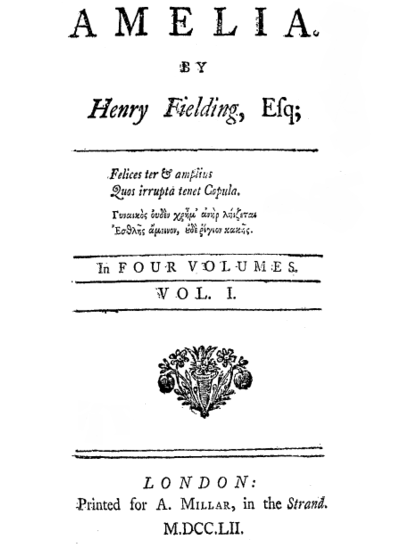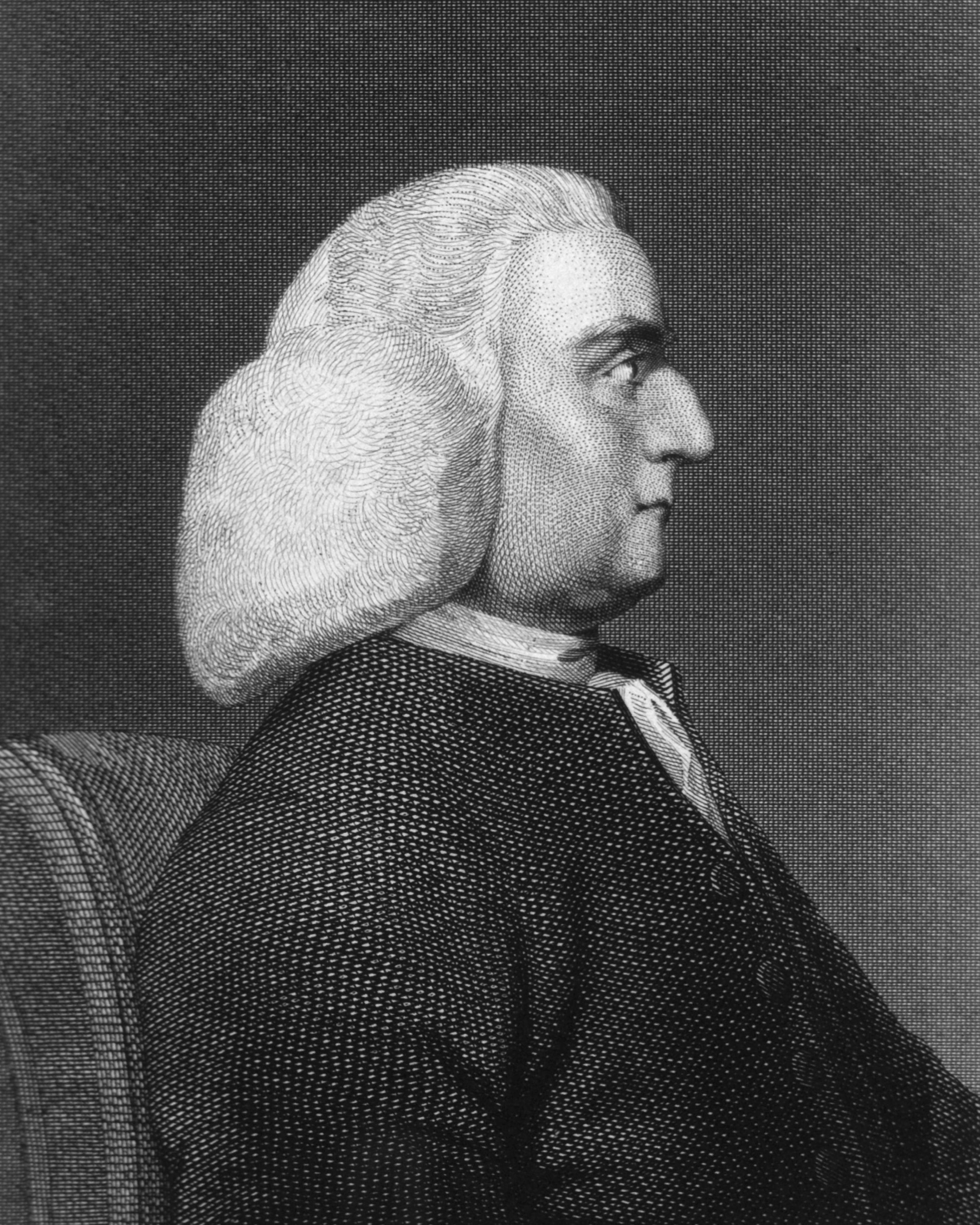|
1751 In Literature
This article contains information about the literary events and publications of 1751. Events *May 19 – ''Demetrio'', an opera based on lyrics by court poet Pietro Metastasio, with music by Davide Perez, is performed at Teatro San Samuele in Venice. In the same year, in Vienna, Metastasio writes the poem, ''Il rè pastore'', later used by Wolfgang Amadeus Mozart to compose an opera seria. * June 28 – The first volume of Denis Diderot's ''Encyclopédie'' is published. *''undated'' **''The Art of Cookery Made Plain and Easy'' by Hannah Glasse becomes the first formally published modern cookbook in English. **John Smith & Son's bookshop is established in Glasgow. It claims to be the oldest surviving bookseller in the English-speaking world. New books Fiction *John Cleland – ''Memoirs of a Coxcomb'' * Francis Coventry – ''The History of Pompey the Little'' *Henry Fielding – '' Amelia'' *Eliza Haywood – ''The History of Miss Betsy Thoughtless'' * Robert Paltock – ''The ... [...More Info...] [...Related Items...] OR: [Wikipedia] [Google] [Baidu] |
May 19
Events Pre-1600 * 639 – Ashina Jiesheshuai and his tribesmen assaulted Emperor Taizong at Jiucheng Palace. * 715 – Pope Gregory II is elected. * 1051 – Henry I of France marries the Rus' princess, Anne of Kiev. *1445 – John II of Castile defeats the Infantes of Aragon at the First Battle of Olmedo. * 1499 – Catherine of Aragon is married by proxy to Arthur, Prince of Wales. Catherine is 13 and Arthur is 12. * 1535 – French explorer Jacques Cartier sets sail on his second voyage to North America with three ships, 110 men, and Chief Donnacona's two sons (whom Cartier had kidnapped during his first voyage). * 1536 – Anne Boleyn, the second wife of Henry VIII of England, is beheaded for adultery, treason, and incest. * 1542 – The Prome Kingdom falls to the Taungoo Dynasty in present-day Myanmar. 1601–1900 * 1643 – Thirty Years' War: French forces under the duc d'Enghien decisively defeat Spanish forces at the Battle of R ... [...More Info...] [...Related Items...] OR: [Wikipedia] [Google] [Baidu] |
Amelia (novel)
''Amelia'' is a sentimental novel written by Henry Fielding and published in December 1751. It was the fourth and final novel written by Fielding, and it was printed in only one edition while the author was alive, although 5,000 copies were published of the first edition. ''Amelia'' follows the life of Amelia and Captain William Booth after they are married. It contains many allusions to classical literature and focuses on the theme of marriage and feminine intelligence, but Fielding's stance on gender issues cannot be determined because of the lack of authorial commentary discussing the matter. Although the novel received praise from many writers and critics, it received more criticism from Fielding's competition, possibly resulting from the "paper war" in which the author was involved. Background Fielding began writing ''Amelia'' in the autumn of 1749. He turned to his own life for inspiration, and the main character, Amelia, was possibly modelled on Fielding's first wife, ... [...More Info...] [...Related Items...] OR: [Wikipedia] [Google] [Baidu] |
Thomas Gray
Thomas Gray (26 December 1716 – 30 July 1771) was an English poet, letter-writer, classics, classical scholar, and professor at Pembroke College, Cambridge, Pembroke College, Cambridge. He is widely known for his ''Elegy Written in a Country Churchyard,'' published in 1751. Gray was a Self-criticism, self-critical writer who published only 13 poems in his lifetime, despite being very popular. He was even offered the position of Poet laureate, Poet Laureate in 1757 after the death of Colley Cibber, though he declined. His writing is conventionally considered to be Preromanticism, pre-Romantic but recent critical developments deny such Teleology, teleological classification. Early life and education Thomas Gray was born in Cornhill, London. His father, Philip Gray, was a scrivener and his mother, Dorothy Antrobus, was a milliner. He was the fifth of twelve children, and the only one to survive infancy.John D. Baird, 'Gray, Thomas (1716–1771)', ''Oxford Dictionary of National ... [...More Info...] [...Related Items...] OR: [Wikipedia] [Google] [Baidu] |
Nathaniel Cotton
Nathaniel Cotton (; 1707 – 2 August 1788) was an English physician and poet. Cotton is thought to have studied at Leiden University, possibly under Herman Boerhaave.Gay's Fables and Other Poems: Cotton's Visions in Verse; Moore's Fables for the Female Sex 1826 Cotton specialised in the care of patients with mental health issues, maintaining an asylum known as the Collegium Insanorum, at . was one of his patientsCampbell, Thomas [...More Info...] [...Related Items...] OR: [Wikipedia] [Google] [Baidu] |
Thomas Cooke (author)
Thomas Cooke (1703 – 29 December 1756), often called "Hesiod" Cooke, was a very active English translator and author who ran afoul of Alexander Pope and was mentioned as one of the "dunces" in Pope's ''Dunciad.'' His father was an innkeeper. He was educated at Felsted. Cooke arrived in London in 1722 and began working as a writer for the Whig causes. He associated with Thomas Tickell, Ambrose Philips, Leonard Welsted, Richard Steele, and John Dennis. Cooke is the source of one of the primary biographies of John Dennis, which he wrote in Latin. Battles with Alexander Pope Cooke did a great deal of first-rate translation from Latin and ancient Greek. His first publication was an elegy on the death of the highly contentious Marlborough in 1722. He followed that with a masque entitled ''Albion'' in 1724. His most famous production was ''The Battle of the Poets'' in 1725. This was a reworking of the trope of '' Le Lutrin'' that had been used by Jonathan Swift in ''The Battle of the ... [...More Info...] [...Related Items...] OR: [Wikipedia] [Google] [Baidu] |
Richard Owen Cambridge
Richard Owen Cambridge (14 February 1717 – 17 September 1802) was a British poet. Life Cambridge was born in London. He was educated at Eton and at St John's College, Oxford. Leaving the university without taking a degree, he took up residence at Lincolns Inn in 1737. Four years later he married, and went to live at his country seat of Whitminster, Gloucestershire. In 1751 he removed to Twickenham Meadows, where he enjoyed the society of many notable persons. Horace Walpole in his letters makes many humorous allusions to Cambridge in the character of newsmonger. Cambridge died in Twickenham and is buried at St Mary's Church, Twickenham. Works Cambridge's major work was the ''Scribleriad'' (1751), a mock epic poem, the hero of which is the Martinus Scriblerus of Alexander Pope, John Arbuthnot and Jonathan Swift. The poem is preceded by a dissertation on the mock heroic, in which he avows Miguel de Cervantes as his master. It is full of literary in-jokes. The ''Account ... [...More Info...] [...Related Items...] OR: [Wikipedia] [Google] [Baidu] |
Gil Blas (play)
''Gil Blas'' is a 1751 comedy play by the British writer Edward Moore.Watson p.557 It is based on the novel ''Gil Blas'' by French writer Alain-René Lesage. The original Drury Lane cast included David Garrick as Gil Blas, Henry Woodward as Don Lewis, John Palmer as Don Felix, John Sowdon as Don Gabriel, Richard Yates as Melchior, Hannah Pritchard Hannah Pritchard (née Vaughan, 1711–1768) was an English actress who regularly played opposite David Garrick. She performed many significant Shakespearean roles and created on stage many important female roles by contemporary playwrights. Lif ... as Aurora, Frances Cross as Beatrice and Ann Pitt as Bernarda. References Bibliography * Baines, Paul & Ferarro, Julian & Rogers, Pat. ''The Wiley-Blackwell Encyclopedia of Eighteenth-Century Writers and Writing, 1660-1789''. Wiley-Blackwell, 2011. * Watson, George. ''The New Cambridge Bibliography of English Literature: Volume 2, 1660-1800''. Cambridge University Press, 1971. ... [...More Info...] [...Related Items...] OR: [Wikipedia] [Google] [Baidu] |
Edward Moore (dramatist)
Edward Moore (22 March 17121 March 1757), English dramatist and miscellaneous writer, the son of a dissenting minister, was born at Abingdon, Berkshire. He was the author of ''Fables for the Female Sex'' (1744), ''The Trial of Selim the Persian'' (1748), ''The Foundling'' (1748) and ''Gil Blas'' (1751). He wrote the domestic tragedy of ''The Gamester'', originally produced in 1753 with David Garrick in the leading character of Beverley the gambler. It is upon ''The Gamester'' that Moore's literary reputation rests; the play was much-produced in England and the United States in the century after Moore's death. The oft-quoted phrase "rich beyond the dreams of avarice" is spoken by Mrs. Beverley in the play's second act. As a poet he produced clever imitations of John Gay and Thomas Gray, and with the assistance of Lord Lyttelton, Lord Chesterfield and Horace Walpole, conducted ''The World'' (1753–1757), a weekly periodical on the model of the ''Rambler''. He collected his p ... [...More Info...] [...Related Items...] OR: [Wikipedia] [Google] [Baidu] |
David Mallet (writer)
David Mallet (or Malloch) ( 1705–1765) was a Scottish poet and dramatist. He was educated at the University of Edinburgh, and went to London in 1723 to work as a private tutor. There he became friendly with Alexander Pope, James Thomson, and other literary figures including Henry St John, Viscount Bolingbroke. His best-known work was written in the same year: '' William and Margaret'', adapted from a traditional ballad. In 1740, he collaborated with Thomson on a masque, ''Alfred'', which was the vehicle for "Rule, Britannia!". His other plays and poetry (e.g. ''Amyntor and Theodora''), popular at the time, are largely forgotten, but Bolingbroke's writings were edited and published by Mallet in 1754. Life Mallet was probably the second son of James Malloch of Dunruchan, a well-to-do tenant farmer on Lord Drummond's Perthshire estate, a Roman Catholic, and a member of the outlawed Clan MacGregor. The household suffered during the Jacobite Rebellion of 1715. Mallet gave his age ... [...More Info...] [...Related Items...] OR: [Wikipedia] [Google] [Baidu] |
Micromégas
''Le Micromégas'' is a 1752 novella by the French philosopher and satirist Voltaire. Along with his story "Plato's Dream", it is an early example in the literary genre of science fiction and has its place in the development of the history of literature. Some uncertainty surrounds the first publication of ''Micromégas'', with possible editions dating to 1751 or as early as 1739, but with the widely accepted publication being 1752. The tale recounts the visit to Earth of a being from a planet circling the star Sirius, and of his companion from the planet Saturn. The technique of using an outsider to comment on aspects of Western culture was popular in this period; Voltaire also used it in ''Zadig''. Montesquieu, too, applied it in ''Persian Letters'', as did José Cadalso in ''Cartas marruecas'' and Tomás Antônio Gonzaga in '' Cartas Chilenas''. Plot The story is organized into seven brief chapters. The first describes Micromégas, whose name literally means "small-large" ... [...More Info...] [...Related Items...] OR: [Wikipedia] [Google] [Baidu] |
Voltaire
François-Marie Arouet (; 21 November 169430 May 1778) was a French Age of Enlightenment, Enlightenment writer, historian, and philosopher. Known by his ''Pen name, nom de plume'' M. de Voltaire (; also ; ), he was famous for his wit, and his criticism of Christianity—especially Criticism of the Catholic Church, of the Roman Catholic Church—and of slavery. Voltaire was an advocate of freedom of speech, freedom of religion, and separation of church and state. Voltaire was a versatile and prolific writer, producing works in almost every literary form, including stageplay, plays, poems, novels, essays, histories, and scientific Exposition (narrative), expositions. He wrote more than 20,000 letters and 2,000 books and pamphlets. Voltaire was one of the first authors to become renowned and commercially successful internationally. He was an outspoken advocate of civil liberties and was at constant risk from the strict censorship laws of the Catholic French monarchy. His polemics ... [...More Info...] [...Related Items...] OR: [Wikipedia] [Google] [Baidu] |
The Adventures Of Peregrine Pickle
''The Adventures of Peregrine Pickle'' is a picaresque novel by the Scottish author Tobias Smollett, first published in 1751 and revised and published again in 1758. It tells the story of an egotistical man who experiences luck and misfortunes in the height of 18th-century European society. Plot summary The novel begins with the character of Peregrine as a young country gentleman rejected by his cruel mother, ignored by his indifferent father, and hated by his degenerate brother. After their alienation, he turns to Commodore Hawser Trunnion, who raises him. Peregrine's detailed life experience provides a scope for Smollett's satire on human cruelty, stupidity, and greed: from his upbringing, education at Oxford, journey to France, jailing at the Fleet, and unexpected succession to his father's fortune and his final repentance and marriage to his beloved Emilia. The novel is written as a series of adventures, with every chapter depicting a new experience. The novel also contain ... [...More Info...] [...Related Items...] OR: [Wikipedia] [Google] [Baidu] |




_-_Captain_Lord_George_Graham%2C_1715-47%2C_in_his_Cabin_(cropped).jpg)


